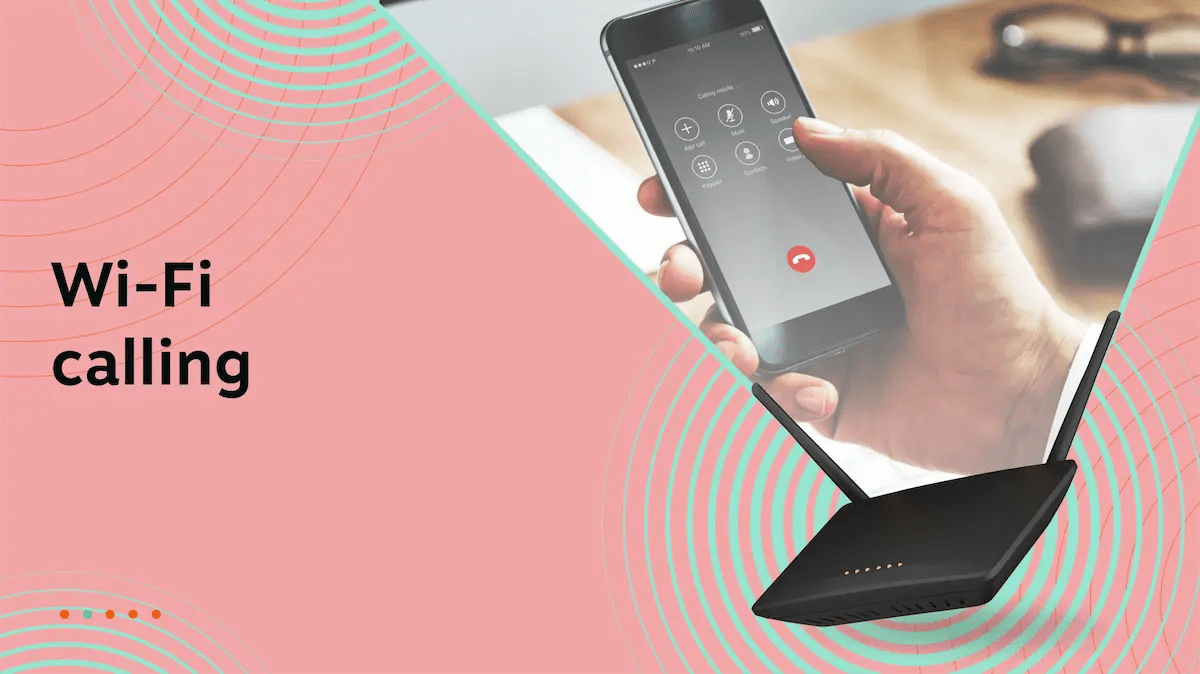A reliable and feature-rich phone system is crucial for effective business communication.
When choosing a business phone system, the two main options are PBX (Private Branch Exchange) and VoIP (Voice over Internet Protocol). PBX uses physical phone lines and hardware, while VoIP transmits voice data over the internet.
Both PBX and VoIP offer a range of features to support business needs, but they differ significantly in upfront costs, maintenance requirements, and technical expertise needed for implementation and management.

This article will compare PBX and VoIP systems across key factors like cost, features, scalability, reliability, and security. We’ll provide an objective overview to help you choose the phone system that meets your specific needs.
We’ll start with the basics of VoIP and PBX, but you can also skip straight to the differences.
What Is PBX?
PBX or Private Branch Exchange is a business phone system that connects all office desk phones within an organization on the same telephone network. It allows companies to make internal calls for free and transfer calls between extensions.
Traditional PBX systems use landline phone lines (PSTN) for external calls and physical phone lines for internal communication. The PBX hardware is typically installed on-site and requires maintenance by the company’s IT staff.

With PBX, a company can have more phones than actual phone lines by using extensions to redirect phone calls to the main business phone number. This allows for efficient use of resources and cost savings on phone line expenses.
In recent years, IP PBX systems have emerged, which use the internet for internal calls instead of physical phone lines.
This technology has paved the way for hosted PBX solutions, cloud-based alternatives many VoIP providers offer. Hosted PBX offers many of the same features as traditional PBX without complicated on-site installation and maintenance.
What Is VoIP Technology?
VoIP (Voice over Internet Protocol) is a technology that enables voice communication over the internet instead of traditional phone lines. It converts analog voice signals into digital data packets, transmitted over the internet to the recipient.
Here’s a simplified overview of how VoIP works:
- VoIP phones convert voice into digital data packets.
- The data packets are sent over the internet to the VoIP provider’s data center.
- The provider routes the packets to the recipient’s device.
- The recipient’s device converts the data back into voice.
Modern VoIP offers high call quality, advanced features like HD voice and call forwarding, and cost savings compared to traditional phone systems.
Key Differences Between PBX and VoIP
There are advantages and disadvantages to both PBX and VoIP. Here are a few key differences.
1. Connection
PBX systems use traditional landlines or PRI (Primary Rate Interface) to handle calls, which typically run on a separate network from the company’s main internet-connected LAN.
On the other hand, VoIP leverages the company’s existing internet connection and network infrastructure, such as Ethernet, to transmit voice data.
VoIP calls usually require around 100 kbps of bandwidth per line.
2. Cost
Cost is another significant factor to consider.
Implementing a PBX system involves substantial upfront expenses for hardware like servers, routers, gateways, and phones, along with the cost of installation and setup.
Ongoing costs for PBX include software licenses, maintenance fees, and traditional phone line charges, which can be up to 60% higher than VoIP.
In contrast, VoIP has much lower initial costs, primarily limited to purchasing IP phones.
VoIP providers typically charge a monthly subscription fee per user, starting as low as $18-25/month, and often include domestic calling, PBX features, and customer support. International calls are also generally cheaper with VoIP.

3. Scalability
Scalability is another area where VoIP shines.
Expanding a PBX system involves the time-consuming and costly process of installing new phone lines and hardware, especially when setting up new office locations.
With VoIP, scaling is a breeze — simply purchase more IP phones, add users to your plan, and potentially upgrade your internet bandwidth. VoIP also seamlessly connects multiple office locations using the same plan.
4. Features
Both PBX and VoIP offer standard business phone features like call forwarding, conferencing, and voicemail.
However, VoIP plans often include more advanced features such as video conferencing, instant messaging, mobile apps for remote work, integrations with CRMs and other business tools, visual voicemail, and detailed call analytics.
Some VoIP providers even offer contact center features. Moreover, VoIP provides greater flexibility in hardware options, supporting IP phones, softphones, and mobile devices, while PBX phones have limited compatibility.
5. Maintenance
PBX systems are managed and maintained by the company’s own IT staff — costly and time-consuming, requiring specialized PBX expertise.
With hosted VoIP, the provider manages all backend hardware and software, and issues can be resolved remotely by the provider’s support team, minimizing the need for on-site IT staff.
6. Security
Security is a concern for both systems.
PBX phone systems are not connected to the internet, making them immune to internet-based threats. However, they’re vulnerable to physical intrusion and toll fraud.
VoIP systems can be susceptible to internet-based attacks, but security measures like encryption and network monitoring help mitigate risks.
When selecting a VoIP provider, it’s essential to consider their security practices and reputation.
7. Reliability
Finally, reliability is a crucial factor.
PBX systems are generally quite reliable since they don’t depend on internet connectivity. However, they can go down during a power outage or hardware failure.
VoIP call quality and reliability depend on the internet connection and network infrastructure. Sufficient bandwidth and proper network configuration are critical.
Choosing a reputable VoIP phone service with reliable service and robust infrastructure is essential. Keep in mind that VoIP services may be unusable during internet or power outages.
This table provides a concise overview of the key differences between PBX and VoIP systems across factors, so you can make informed decisions based on your specific needs.
| Factor | PBX | VoIP |
|---|---|---|
| Connection | Uses landlines or PRI, separate from LAN | Uses internet connection and existing network |
| Upfront costs | High (hardware, installation, setup) | Low (mainly IP phones) |
| Running costs | Higher (licenses, maintenance, phone lines) | Lower (monthly subscription, cheaper calls) |
| Scalability | Difficult and expensive (new lines, hardware) | Easy and cost-effective (add phones and users) |
| Features | Standard PBX features | Advanced features (video, mobile, integrations) |
| Hardware | Limited compatibility | Flexible (IP phones, softphones, mobile) |
| Maintenance | In-house IT staff, specialized expertise | Provider manages backend, remote issue resolution |
| Security | Not internet-connected, vulnerable to intrusion | Internet-based risks; security measures in place |
| Reliability | High, but susceptible to power/hardware issues | Dependent on the internet; choose a reputable provider |
| Outages | Affected by power outages | Affected by internet or power outages |
Choosing Between PBX and VoIP

💰Consider your business size and budget
If you’re a large company with a dedicated IT team and have the resources to invest in high-end hardware, PBX might be the way to go. With PBX, you’ll get top-notch call quality and reliability, crucial if your business heavily relies on phone communication.
On the other hand, if you’re a small or medium-sized business looking for an affordable and flexible solution, VoIP is probably your best bet.
With VoIP, you can make and receive calls using your internet connection. You don’t need to invest in expensive hardware. VoIP is super scalable, so you can easily add or remove lines as your business grows or changes.
✅ Consider the features you need
Do you want basic call forwarding and voicemail, or are you looking for more advanced features like call analytics and integration with your CRM software?
VoIP systems often come with a wide range of features right out of the box, while PBX systems may require additional hardware or software to access certain features.
🖥 Think about your IT expertise
If you have a team of tech-savvy employees who can handle the installation and maintenance of a PBX system, great! But if you don’t have the resources or know-how to manage a complex phone service, VoIP might be the simpler and more user-friendly option.
The choice between PBX and VoIP phone systems depends on your unique business needs and priorities.
Take some time to assess your requirements, budget, and IT capabilities, and you’ll be well on your way to finding the perfect phone system for your company.
Nextiva — Your Best-Practice Communication System
To save time and effort hunting for new tools, turn to Nextiva. It has all business sizes and types covered.
Nextiva offers a basic and easy-to-use plan for small businesses that starts at $30/user per month. With fewer advanced features, it’s easy to get your new phone system up and running.

We provision all phones before we send them, so all you have to do is plug them in and turn them on. You don’t need an experienced IT team or a large technology budget to get started.
So, if VoIP is the best choice for SMBs, does that mean that PBX is the best choice for enterprises?
Not so fast. Sure, enterprises do have the budget and infrastructure to install and manage on-premise PBX systems for all their offices. But that doesn’t change the fact that each office’s intranet installation is an island. There can be a clear disconnect between offices throughout the country.
But you don’t have to switch completely to fix this issue. An IP PBX connected with VoIP through SIP trunking is an excellent option for enterprises with existing PBX systems.
Nextiva’s enterprise cloud PBX solution can help connect different office systems. It will centralize voice data and bring transparent reports to your managers.
With cross-office data in one place, your C-suite gets a better view of business performance.
Final Verdict: PBX vs. VoIP
PBX and VoIP have a lot of the same features and benefits. The real difference lies in scalability, costs, maintenance, multi-office collaboration, and centralized data.
If you want all the standard PBX features (with some unique to VoIP) at a lower cost, check out Nextiva’s hosted PBX solutions.
For companies that already have a PBX in place, you don’t have to settle for one or the other. With SIP trunking, you can get all the benefits of VoIP without installing a new system from scratch.
Related: What to Do When Your PBX Vendor Reaches End-of-Life (EOL)
Get the best business VoIP for less.
Reap the benefits of both VoIP & PBX and gain a reliable communications partner.
PBX vs. VoIP FAQs
VoIP is often considered better than traditional PBX systems because it allows for greater flexibility as users can make and receive calls from anywhere with an internet connection. VoIP also offers more features and integrations with other business tools. It’s also typically more cost-effective since it eliminates the need for expensive hardware and maintenance associated with traditional PBX systems.
VoIP is the underlying technology that enables voice communication over the internet, while hosted PBX is a specific implementation of VoIP. With hosted PBX, the service provider manages the PBX system in the cloud, and businesses can access it over the internet. Businesses don’t need to install, maintain, or update the PBX hardware and software themselves, making it a convenient and scalable solution.
VoIP can be used with or without a PBX system. In a simple VoIP setup, calls can be made directly between VoIP-enabled devices without a PBX. However, for more advanced features and functionality, such as call routing, voicemail, and call queues, a PBX system is often used in conjunction with VoIP. This can be an on-premises IP PBX or a hosted PBX solution.
While traditional PBX systems are still in use, they are getting outdated due to the benefits offered by VoIP and cloud-based solutions. Legacy PBX systems often lack the flexibility, scalability, and advanced features that modern businesses require. They also tend to be more expensive to maintain and upgrade. Many organizations are transitioning to VoIP and hosted PBX solutions to take advantage of the improved functionality, cost savings, and flexibility they provide.

















 VoIP
VoIP 







